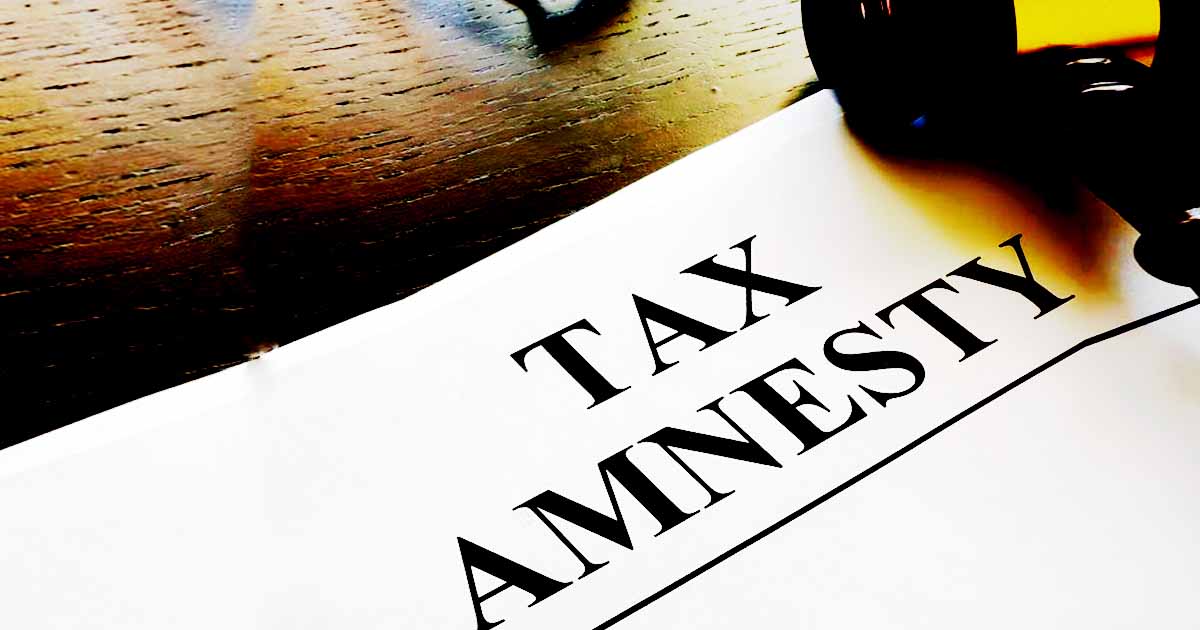News Desk |
Days after the Prime Minister’s Advisor on Finance Dr Hafeez Shaikh raised objections on the proposed tax amnesty scheme and instructed the Federal Board of Revenue (FBR) to make changes in it, FBR has recommended three phases for the new tax amnesty scheme for undeclared assets.
In the newly proposed scheme, the FBR has recommended tax rates for undeclared assets, excluding the domestic real estate and undisclosed income, at 5 per cent, 10 per cent and 20 per cent for the period ending on June 30, September 30 and December 31, 2019. The FBR’s latest draft said that all three phases for the asset declaration scheme would be launched through the promulgation of the presidential ordinance.
The draft revealed that the value of foreign assets to be declared under the scheme would be converted into Pakistani currency with prevailing exchange rate on the date of declaration. In addition, the scheme would be covering the real estate sector at one per cent, two per cent and four per cent for three phases at fair market value. The draft adds that value would be determined not less than the value prescribed by the FBR under Section 68 of Income Tax Ordinance, 2001.
Read more: Hafeez Sheikh disallows PTI’s tax amnesty scheme
The FBR recommendations state that the undisclosed sales would be chargeable to tax at the rate of 3 per cent of such sales in lieu of sales tax and federal excise duty. The proposed draft suggests that foreign asset declared shall be required to be repatriated to Pakistan or invested in ‘Pakistan Banao Certificate’ before filing of declaration as the State Bank of Pakistan has prescribed. However, it added, the condition would not be applicable on the foreign real estate.
Moreover, it has been proposed that an asset declared under the scheme shall be prohibited to be transferred to any holder of public office as a gift or if it is below the fair market value by any person. Violation of the rule shall be considered void and deemed to have never been made under this ordinance.
In the first clear departure from the plans of the former finance minister Asad Umar, Shaikh while raising objections on the classification had disallowed the design of the scheme, the local media reported.
Read more: PTI set to launch its own amnesty scheme but how effective is it really…
The adviser “reviewed the proposed Assets Declaration Scheme 2019 in detail with FBR officials and instructed them to fine-tune the scheme to make it simple to understand and easy to implement,” a handout issued by the finance ministry had read.
In the first meeting with the officials of the FBR, Shaikh has directed them to come up with a more simplified version of the scheme. He rejected the suggestion to introduce six types of tax rates for various categories of assets. While focusing on the scope and features of the scheme, Shaikh told the officials that the purpose of the scheme should be to make economy more tax compliant and documented.
Umar’s Scheme
Under Umar’s model of the tax amnesty scheme, it was reported, the FBR had proposed setting different tax rates for the repatriation of offshore assets, disclosure of domestic assets and legalization of Benami assets.
Read more: World Bank concerned over the macroeconomic stability of Pakistan
The report stated that the FBR had suggested a minimum of 5 per cent, 10 per cent and a maximum 15 per cent rate for the repatriation of offshore assets. For the declaration of domestic assets, it added, FBR had proposed 10 per cent, 15 per cent and 20 per cent rates. For clearance of Benami assets, the proposed rates were 15 per cent, 20 per cent, and 25 per cent.
PML-N’s Tax Amnesty Scheme
The PML-N’s tax amnesty scheme had resulted in the whitening of assets worth Rs2.5 trillion in return for Rs124 billion in taxes. Over 82,000 people had availed the previous tax amnesty scheme.
As earlier reported in local media, the FBR had suggested a minimum of five per cent, 10 per cent and a maximum 15 per cent rate for the repatriation of offshore assets. For the declaration of domestic assets, the report added, it had proposed 10 per cent, 15 percent and 20 per cent rates. For clearance of Benami assets, the proposed rates were 15 percent, 20 per cent and 25 per cent.
Read more: PML-N’s ‘volatile’ amnesty scheme is here to stay for another month
Earlier, the report said, the idea was to charge the highest rates from those possessing Benami assets, but now it seems they would be able to legalise their wealth without much trouble.
Tax Amnesty Schemes in India
According to the Indian media reports, a four-month amnesty for tax evaders in 2016 had resulted in the declaration of hidden assets worth nearly $10bn. The amnesty had attracted 64,275 declarations, with the average amount declared standing at Rs10.2m.
The 2016 ‘Income Declaration Scheme’ had allowed citizens to report assets previously undeclared to the tax authorities without being prosecuted. A charge of 45 per cent was levied on the assets declared under the scheme.
Read more: Pakistan looks to trace back $150 billion stashed in UAE
Earlier, India had introduced ‘Voluntary Disclosure of Income Scheme’ in 1997. In the erstwhile scheme, income or assets worth INR333.39bn were voluntarily declared and an aggregate tax of INR97.6bn was paid to the government.














